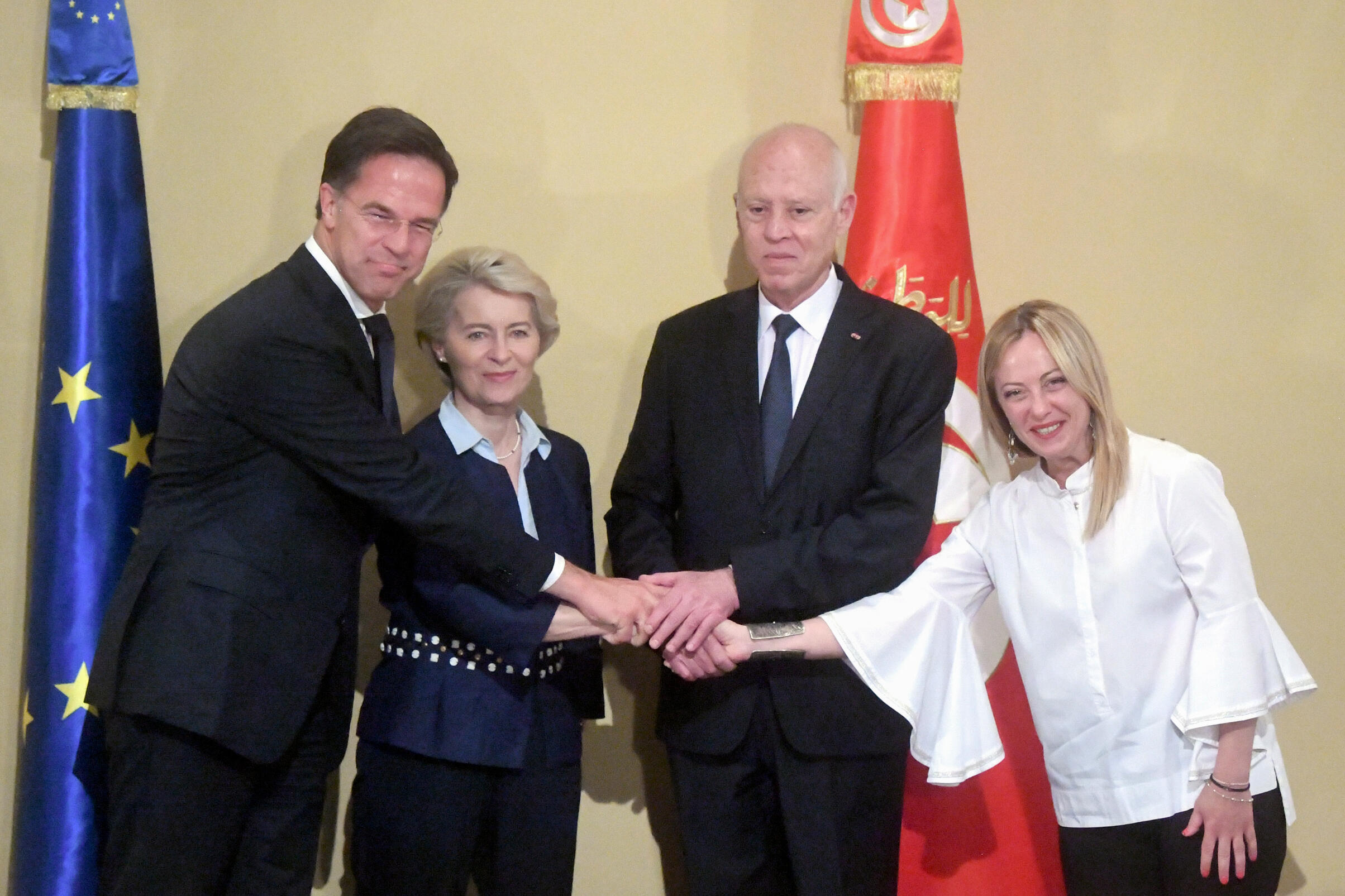The European Union (EU) and Tunisia have officially signed a memorandum of understanding for a ‘strategic and comprehensive partnership’ aimed at combatting irregular migration and boosting economic ties between the bloc and the North African country, which lies on a major route for migrants and refugees travelling to Europe.
The President of the European Commission, Ursula Von der Leyen, Dutch Prime Minister Mark Rutte, and Italian Prime Minister Giorgia Meloni held renewed talks with Tunisian President Kais Saied on Sunday as the number of migrants and refugees departing from Tunisia and trying to reach Europe has significantly increased in recent months.
Speaking at the Tunisian presidential palace, Von der Leyen praised the accord as an investment in ‘shared prosperity and stability’.
‘Tunisia and the European Union are bound by our shared history and geography, and we share strategic interests,’ she said.
Read Also: How Tunisian Fisherman Discovered Dead Bodies In His Net
Saied said there is the utmost need for a collective agreement on what he called “inhuman migration”, for which he blamed criminal networks.
‘This memorandum should be coupled at the earliest time by a set of binding agreements emanating from its principles,’ he said.
Rutte said the agreement would help combat human traffickers.
‘It contains agreements on disrupting the business model of people smugglers and human traffickers, strengthening border control and improving registration and return. All essential measures for bolstering efforts to stop irregular migration,” Rutte said on Twitter.
Meloni welcomed “a new and important step to deal with the migration crisis”, and invited Tunisia’s Saied to an international conference on migration on July 23.
Africa Today News, New York recalls that sometime last month, the three leaders visited Tunisia, and the European Commission said at the time that it was considering supporting Tunisia with an aid package of up to 900 million euros ($1,010m) as the country is roiled by economic woes and rising numbers of migrants and refugees travelling through it as they seek to reach Europe.
Specific aid that von der Leyen announced on Sunday included a 10-million euro ($11 million) programme to boost exchanges of students and 65 million euros ($73 million) in EU funding to modernise Tunisian schools.
The EU will work with Tunisia on an anti-smuggling partnership, will increase coordination in search and rescue operations and both sides also agreed to cooperate on border management, she said. Von der Leyen pledged 100 million euros ($112 million) for those efforts – a figure she had already announced on the leaders’ previous visit.
As of Friday, the Italian interior ministry counted more than 75,000 migrants who had arrived by boat on the Italian coast since the beginning of the year compared to about 31,900 in the same period last year.

